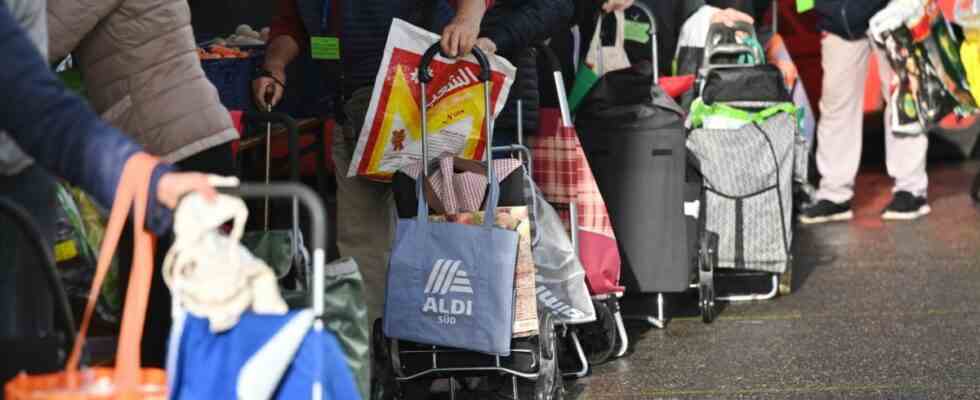Almost every sixth person in Munich is poor. The city council is not turning a blind eye to this result of the new poverty report, but is expanding the range of help. At the request of the SPD/Volt parliamentary group in the town hall, the responsible specialist committees unanimously decided to adjust the poverty risk limit to inflation annually instead of every five years. Anyone who has an income below the threshold of currently 1540 euros for a single person can receive a range of help and benefits. The next increase should take place on April 1, 2023, announced SPD parliamentary group leader Anne Hübner.
The social department should also focus more closely on older migrants, “they find it difficult in Munich”. For them, the offers should be more accessible, said Hübner. But also with a view to old people, for whom, according to a survey by the social department, around a quarter of those entitled do not apply for basic security, the social community centers are to be made even more accessible in the future. The city council is providing 250,000 euros per year for this purpose.
“We have to take away people’s fear of getting help,” said Hübner. “We do everything that is possible for the social sector.” The free social counseling for the needy at the H-Team aid organization is also being expanded, and there is also more support for the Gorod cultural center, the intercultural Muslim forum for women and families, and the railway station mission.
According to the welfare association in Munich, the citizens’ income will not be enough
“Munich has a good tradition of fighting poverty,” praised Karin Majewski, Managing Director of the Parity Welfare Association. She emphasized that food inflation was 20 percent, “that drives poverty”. Even if the citizen’s income is increased from 449 to 502 euros a month for single people at the beginning of the year, people continue to live in poverty. According to the calculations of your association, it should be at least 700 euros.
She thinks it is right to continue sending letters to Berlin with corresponding demands, but she doubts that they will have much of an impact. For example, the one-off services for household appliances were missing, “people have to save the fridge from their mouths”. Majewski therefore wished for “even more commitment to fighting poverty and reducing bureaucracy”.
Alexandra Gassmann (CSU/Free Voters) found that the poverty report should present the situation of families with many children in more detail. The chairman of the district youth council, Judith Greil, complained that the report dealt too little with the problems of children and young people. Social officer Dorothee Schiwy (SPD) announced that large families will be reported on separately next year. The problems of children and young people from poor families should then be discussed again in the child and youth welfare committee. Despite all the difficulties, “we have a good social infrastructure,” said Mayor Verena Dietl (SPD). “Germany looks to Munich.” Her great concern is the lack of skilled workers in the social sector, many important projects are urgently looking for staff.

